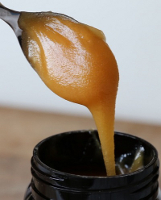
The story of manuka honey has become a global sensation and not to mention a multi-million dollar industry. The storyline is indeed the stuff of legend: a honey that not so long ago was more or less given away is accidentally discovered to have an unusual and powerful antibacterial effect and in the space of two decades becomes a global industry worth millions of dollars.
Academic researchers key to manuka honey
The status of manuka honey as a natural superfood above all others has gained momentum through endorsements of its healing properties by international superstars in the worlds of sport and music. But the story would never have become so interesting without the work of two researchers in particular: Dr Peter Molan in New Zealand, who discovered the antibacterial effect of manuka honey and Rose Cooper, Professor of Microbiology at Cardiff School of Health Sciences.
Professor Cooper is an expert in wound management and has been studying the effect of manuka honey on antibiotic resistant strains of bacteria in wound management since the 1990s. Wound management might seem a world away from the jet setting glamour of superstar athletes and musicians, but her work has been invaluable in helping to unlock the secrets of manuka honey and has highlighted just what an incredible substance it is.
Wound care management unglamorous but costly for the NHS
Wound care management is not a subject that garners much in the way of press interest, but perhaps it should as it is a significant and growing cost on the entire health care system thanks to the fact that we are living longer and the menace of diabetes in particular. Back in 2008, a report by the Nursing Times estimated that wound care accounted for 3% of the entire NHS budget.
Professor Cooper’s findings and work have established in more detail how manuka honey is effective in wound management by showing that the honey inhibits bacteria from attaching themselves to tissue, which is how infections are caused, and that this effect also stops biofilms from forming, which is important because biofilms can protect bacteria against antibiotics.
Professor Cooper has published dozens of academic articles on manuka honey in treating wounds such as leg ulcers, and has been interviewed by BBC. It is her research work on treating MRSA bacteria in wounds that that has made Professor Cooper a global authority on manuka honey, and as a result of her work the world has become more aware of the honey’s ability to combat antibiotic resistant bacteria, or MRSA.
Renaissance of honey in medicine
The increasing number of companies and products made with manuka honey for wound care is another reason why the demand for the honey just keeps on going up, which is only likely to continue as the medical world loses its own resistance at the idea of using honey as a serious method of topically treating wounds. This renaissance of using honey in medicine is also thanks to the work of Professor Cooper.
The type of manuka honey used in the wound care setting is a special medical-grade manuka honey, which means the honey is sterilized (which does not affect is unique bioactive properties)
